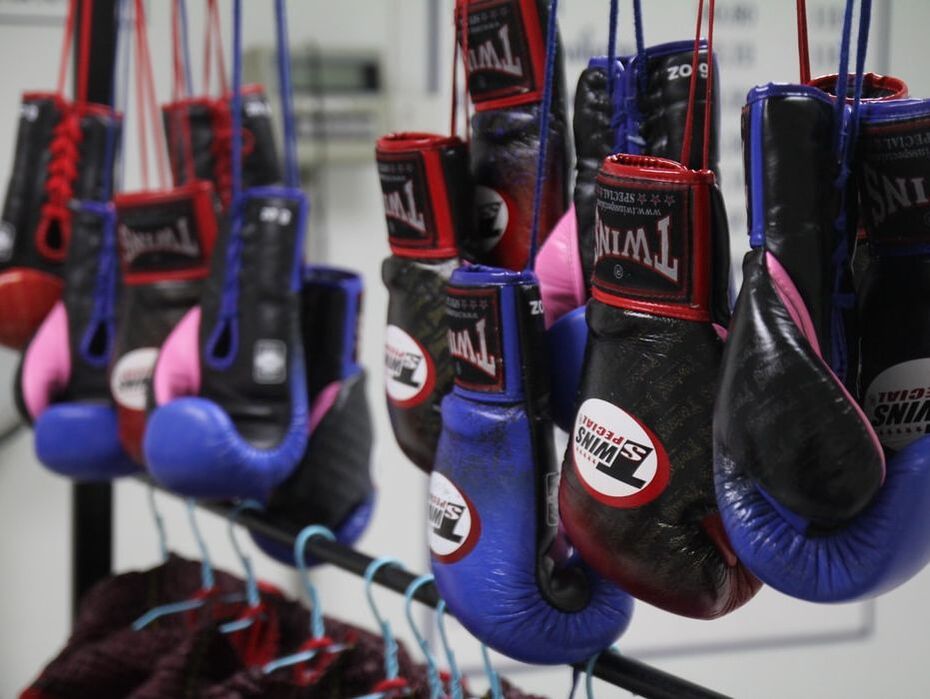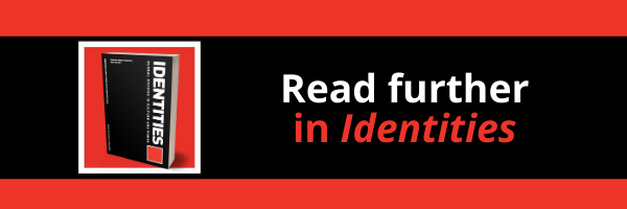|
|
|
You might reasonably wonder what Muay Thai or Kickboxing has got to do with race or division? Or what the niche sports of Muay Thai and Kickboxing are in the first place. Muay Thai is a combat sport originating from Thailand that evolved out of 17th-century warfare techniques and now incorporates punches, kicks, knees, elbows and clinching. Kickboxing has a similar ruleset, albeit elbows are illegal and clinching is limited. Training within both sports is an embodied practice that requires intimate bodily contact between training partners.
My Identities article, ‘Fighting with race: complex solidarities & constrained sameness’ (and the broader doctoral project it derives from), draws upon ethnographic field work and my experience training to compete in Muay Thai. Within the article, I explore how fighters seek to construct one another as the same, as fighters, as they disavow race and problematise prior notions of gender and masculinity (alongside other identity markers). In part, the disavow of gender and masculinity was enabled by the presence of female fighters, which contrasts with boxing gyms that are notable for the exclusion of women and/or for taking their fighting ambitions less seriously. Thus, whilst remaining a ‘hyper-masculine’ space, I foreground three factors that enable people to argue for contingent sameness.
Firstly, my field site, Origins Combat Gym (pseudo-anonymised), is a highly ‘diverse’ space dominated by a large Polish and Black constituency, with White-British fighters notable by their absence. It is also, as noted, a space with a growing constituency of female fighters, which ostensibly requires people to cross both gendered and racial lines in the training environment.
Secondly, the nature of the sport requires fighters to suffer alongside one another on the gym floor through rigorous training, controlling what they eat through strict diets, and going for regular runs outside of fixed training sessions. Fighters assist one another in these processes through literally lending their bodies to one another to enable each other to improve in the sport. This feeds a sense of solidarity and mutual respect whereby people bond over a shared experience of sacrifice and hardship. Thirdly, my field-site is ostensibly an egalitarian space, insofar as all members are trained at the same time, in the same way, whilst wearing the gym’s kit. This extends to all fighters, regardless of who they are outside of the gym, including female fighters. This realisation about the wider world prompted many people to seek refuge within a sport – and a gym – that they believed to be meritocratic and just, unlike the world outside that is neither just nor meritocratic. Such a social belief similarly enabled female fighters to contest dominant gendered thinking situating them as weak and timid.[1] Becoming a fighter meant leaving the old self behind, to become something new, something unconstrained. These three factors create a social context whereby my respondents argue – and believe – that race is rendered irrelevant as they pursue their training and fighting goals. This opens up the possibility for wide-reaching coalitions and solidarities, as people projected a vision for a community that viewed everyone as the same, no matter who they are in the wider social world. Such a vision was embraced by all fighters, including female fighters and ostensibly White fighters from places such as Poland and Slovakia. Importantly, such a projection of a utopic society did not rest on a belief that the world was ‘post-racial’, but rather saw the wider social world as heavily raced. My respondents conceived of the gym as a ‘safe haven’, amidst a racist society that they believe and perhaps know constrains them in the world outside. Yet, as I draw out within my article, leaving the old self behind is not a straightforward process. Many of my respondents acknowledged – in myriad ways – that race was harder to escape than perhaps they wanted to believe. To explain these complex processes, I draw upon Bourdieu’s conceptual tool habitus to conceive of a racial habitus that is durable but never fully determined. Although the logic of race is not easily cast aside, the attempts of my respondents to reject the logic of ethnic absolutism through forging complex localised solidarities offers hope in anti-immigrant times. [1] I explore - and complicate - this in greater depth elsewhere in a forthcoming piece.
Blog post by Amit Singh, Birkbeck College, UK
Read the Identities article: Singh, Amit. Fighting with race: complex solidarities & constrained sameness. Identities: Global Studies in Culture and Power. DOI: 10.1080/1070289X.2021.1953785
Explore other relevant Identities articles:
‘Undisputed’ racialised masculinities: boxing fandom, identity, and the cultural politics of masculinity Cricket in the ‘contact zone’: Australia’s colonial far North frontier, 1869–1914 ‘When breaking you make your soul dance’ Utopian aspirations and subjective transformation in breakdance
0 Comments
Your comment will be posted after it is approved.
Leave a Reply. |
|
Explore Identities at tandfonline.com/GIDE |
|
The views and opinions expressed on The Identities Blog are solely those of the original blog post authors, and not of the journal, Taylor & Francis Group or the University of Glasgow.


